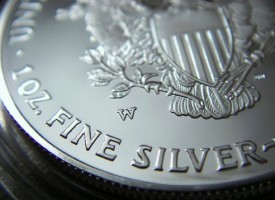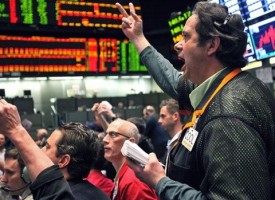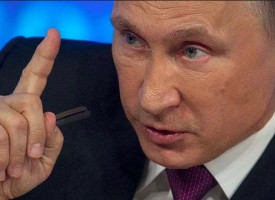Look at who just said China is going to launch a digital currency back by gold in 4 months.
The World Is Changing
October 24 (King World News) – Dr. Stephen Leeb: The world we’ve grown up in is changing profoundly, in ways that most people – including investors – haven’t yet grasped.
It starts with an historic shift in the worldwide balance between rich nations – the U.S. and other developed economies, representing 20% of the world’s population – and poor nations. Poorer nations increasingly are driving the global economy. This ultimately will create a lot of turbulence, especially in rich countries. Among other things, the stock market, which has been a source of extraordinary gains for two generations, will be lucky to merely hold its own in the next decade or longer. And if less lucky we could see a major financial crash.
Within a decade or so, the world’s financial infrastructure will be vastly different from today. The changes will come as, over the very near term, we start to move to a new monetary system that no longer gives wealthy nations an unwarranted advantage.
To understand how and why the world is changing, let’s look at some of the differences between the U.S. and China. China, whose per capita GDP (2010 constant dollars) is about $8,400 compared to $54,000 in the U.S., is focused on developing on all fronts, from natural resources to high tech. It’s far more commodity-intensive than the U.S. The U.S. is focused on maintaining a perceived advantage in technology and financial infrastructure…
Keith Neumeyer Just Predicted $100+ Silver And $3,000 Gold! TO LISTEN CLICK HERE OR ON THE IMAGE BELOW.
One massive difference is relative spending on tangible infrastructure. China spends more than 10 times what the U.S. does, with some data sources – Statista, for example – suggesting the lead could be as much as 40:1. But the U.S. has a massive lead in financial wealth. According to Allianz A. G., in the U.S., average per capita net financial assets amount to more than $200,000 compared to $12,000 in China.
However, in terms of material goods, ranging from cement to rhodium, the poorer countries have a per capita advantage and a massive absolute advantage. According to the OECD, China’s material resources exceed those of the U.S. by more than 5:1. And the ratio has been climbing as China develops more resources while U.S. resources have been depleting over the past 20 years. For most materials, whether critical or common, the U.S. is a net importer, and for many critical areas China is the leading exporter to the U.S. While China is a net importer of energies, overall its exports far exceed its imports, and even in the energy sector, the country is rapidly increasing its exports of various energy products as result of its leading position in refining.
Skyrocketing Commodity Prices
With all this as a backdrop, let’s look at the recent behavior of the dollar, commodities, and gold. From any historical perspective, it could be called weird. For one thing, since the beginning of this year the dollar has been rising at the same time as broad-based commodity indexes have been sharply uptrended. That positive correlation is unheard of, even for very short periods of time. The skyrocketing commodity prices have been historic in themselves. The fact that they come in the face of a rising dollar is in a statistical sense so extreme an anomaly as to seem that you might need to invoke ghostly intervention to explain it.
Even rarer is the inverse correlation we’ve been seeing between those broad-based commodity indexes and gold, which is down around 4% this year and is the only tangible asset that has been falling. Why is that unusual? Because for thousands of years, gold has been a reliable store of value.
The rise in commodities shouldn’t come as a surprise. In recent interviews I’ve argued that the U.S. and other wealthy Western countries have been woefully shortsighted in focusing on eliminating carbon as the most immediate goal in transitioning to renewable energies – shortsighted because that critical transition will require all the energy, from all sources, that we can muster.
And now, predictably, we’re in an energy crisis in which the relative scarcity of fossil fuels is pushing up virtually all commodities. Since the beginning of the year while the dollar has gained about 4%, the broadest measure of industrial commodities, the CRB raw industrial index, which does not include any energies, has had a stunning 26% gain, breaking into all-time high ground in the process. Raw food prices have risen by over 30%…
New interview from legend Doug Casey discussing gold, silver and
global chaos! To listen click here or on the image below.

Prices for renewable energies have risen as those energies have felt the impact of rising commodity prices, and at least some of the worrisome current chip shortage also reflects our green delusion. Over the past two months, prices for the ultra-pure silicon needed to fabricate chips have climbed an extraordinary 300%. It is tempting to blame China, which also has experienced an energy shock. But while China produces almost all of the pure silicon for solar modules, it produces only about 20% of the even purer silicon needed for chips. A week ago, Norway-based Elkem ASA, a major player in silicon used in electronics, said it couldn’t meet its contractual obligations. This clearly reflects the high silicon prices, which have everything to do with an energy shortage stemming from our focus on carbon.
Losing Control Of The Gold Market
I think the entire situation reeks of bad faith, from the emphasis on carbon to the extraordinary behavior of gold, a tangible monetary metal that is the dollar’s biggest rival. By which I mean that I don’t see these recent developments and anomalies as necessarily innocent. Rather, I think the West, or perhaps more accurately the financial sector here including Wall Street and central banks and more, has been desperate to maintain its hegemony and the hegemony of financial assets over a rising East. It’s a losing battle, and in fact, since August, whatever force or intentions holding gold back have started to lose hold. Though the dollar’s rise has moderated a bit, it is still rising, but so is gold, which is up about 3% despite the slight gains in the dollar. That seemingly small anomaly, believe it or not, is also a statistical outlier. It is strong sign that gold has started to overcome whatever forces have been holding it back.
The West’s desperation has been apparent since the energy crisis started to emerge more than a year ago. I am not by nature conspiracy-minded. But think about it. Which countries would you expect to be hurt more by sharply restricting carbon: rich countries that largely depend on intangibles for their wealth or poor countries dependent on tangibles. It’s a rhetorical question. While I don’t doubt the sincerity of all the people in rich countries who fervently believe climate change is the overriding existential threat we, I am starting to have doubts about the source of that view. After all, climate change was talked about for more than 20 years, but only very recently has it been accepted as gospel, with alternate points of view hard pressed to be covered in even the most respected science journals.
I see the financial industry’s embrace of Bitcoin as another facet of the effort to maintain the West’s hegemony by promoting an intangible asset over a tangible one, i.e., gold. And given the enormous amounts of energy that Bitcoin consumes, the hypocrisy is striking: the same industry that promotes ESG and proclaims adherence to a green agenda is offering a Bitcoin ETF to investors and will soon offer futures on the cryptocurrency. This dirtiest of the dirty intangibles is becoming mainstream.
But this, too, is likely to prove an inadequate attempt to hold back the tide of history. Suddenly – and I admit to being surprised by this – China has kicked out its Bitcoin miners and seemingly given up control over this leading cryptocurrency. But two things make China’s action less surprising. One is Bitcoin’s energy consumption, which annually is on a par with the amount of solar energy we have been adding in recent years. And second is that China may think it still can control Bitcoin – and it’s probably right…
To learn which company billionaire Eric Sprott bought a
$10 million stake in click here or on the image below

Why? A hint comes from Nicolas Chaillan, who after three years as chief software officer at the Pentagon recently resigned because, as reported in The Financial Times, he couldn’t stand to watch China overtake the U.S. in cyber security.
“We have no fighting chance against China … it’s already a done deal…good reason to be angry.”
It’s true that China or any hacker won’t be able to break the Bitcoin blockchain unless they have a quantum computer, which is unlikely. But the best hackers can steal Bitcoin from just about anyone. The point is you don’t need to bother figuring out a cryptographic key when you can simply steal the cryptocurrency from even the most secure wallets, ones even not connected to the Internet. Bitcoin holders wouldn’t even be aware of the theft. One sophisticated holder lost $24 million in just such a theft. Now ask yourself what happens if thousands of thefts all take place on a single day. Bitcoin may not disappear, but to pin hopes on it as an alternative to gold – give me a break.
Short Of Engineering A Depression
We’ve reached a point where the Fed has become virtually powerless. Short of engineering a Depression, the Fed has to let inflation take control. Maybe it is a bit of consolation that inflation will be somewhat self-limiting as it will slow growth a bit.
China To Launch Digital Currency Backed By Gold In February
Whether you interpret all the developments I’ve touched on here as resulting from unbridled incompetence or something more nefarious gone wildly astray, the end result is the same. Gold can no longer be held back. Once the Chinese launch their digital currency in February, one that de facto is backed by gold, the new monetary system starts to fall into place. While this could be a death knell to many financial assets, real assets will thrive as the poor nations become richer and the rich struggle to hang on.
Let’s hope we make the best of it and opt to cooperate with a rising East as the world moves to a new monetary system, one that no longer overtly advantages the U.S. and other wealthy countries but that, if we accept it, could lead to more productive and harmonious times. And as an investor, stay in the game. That means load up on gold and other real assets. This will give you and your descendants the power to make a difference when the current turmoil passes.
***To listen to legend Pierre Lassonde discuss the gold, silver and mining share markets and more CLICK HERE OR ON THE IMAGE BELOW.
***To listen to Alasdair Macleod discuss the emergency meeting in London regarding the metals markets CLICK HERE OR ON THE IMAGE BELOW.
***ALSO JUST RELEASED: Billionaire Mining Legend Pierre Lassonde Just Told Investors They Should “Buy Gold Stocks Until It Hurts” CLICK HERE.
***ALSO JUST RELEASED: Pierre Lassonde – We Are Seeing The Perfect Gold 50 Year Storm CLICK HERE.
© 2021 by King World News®. All Rights Reserved. This material may not be published, broadcast, rewritten, or redistributed. However, linking directly to the articles is permitted and encouraged.










